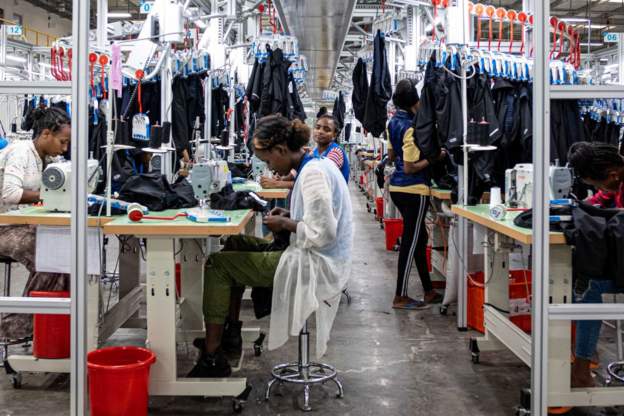Coming out of the World Bank Group (WBG) and International Monetary Fund (IMF) Spring Meetings, a group of African Finance Ministers and partners is urging global institutions to do more to deliver for African countries.
The WBG/IMF Annual Meetings will return to Africa for the first time in fifty years this October, which presents an eight-month window of opportunity for the Multilateral Development Banks and their shareholders to commit to become more responsive to Africa’s priorities in a challenging and changing world.
“We have discussed Africa’s most pressing economic priorities on several occasions over the past months, and now is the time to put a plan of action in place for real and sustainable change that better serves Africa’s people,” said Nadia Fettah Alaoui, Minister of Finance of Morocco.
“We applaud the World Bank Group and International Monetary Fund for their openness to reform and urge them to continue to listen to stakeholders especially from Africa, a continent of 1.5 billion people that receives the majority of resources from these institutions.”
Ministers have outlined five specific and achievable asks over the next eight months that will help transform a system that has become less able to adequately confront the challenges that African countries face in today’s world.
Low-interest money
The World Bank’s International Development Association (IDA) fund is a critical financial lifeline for the world’s poorest countries, many of which are on the African continent.
As countries face multiple overlapping crises, IDA should be growing to keep up. Instead, IDA faces a financing cliff in 2024 which must be avoided at all costs.
African Finance Ministers ask World Bank shareholders and management to present a plan of action by the Summit for a New Financing Pact in June 2023 that grows IDA and ensures adequate financing for the SDGs.
This may include early replenishment, accessing bond markets to bridge the financing gap, or other solutions that will preserve and grow IDA.
IMF Special Drawing Rights (SDRs)
According to the IMF, SDRs are an international reserve asset (not a currency) whose value is “based on a basket of the world’s five leading currencies – the US dollar, euro, yuan, yen and the UK pound.”
Rechanneling these assets to the AfDB will provide much-needed liquidity to African countries and improve their value: under the proposed AfDB framework for re-channeling, the institution will be able to increase its lending fourfold, as opposed to continuing lending SDRs through the IMF at less than one-to-one value.
African Finance Ministers ask that five shareholder nations agree to collectively re-channel SDRs to the AfDB and that IFIs and global decision makers support the action, by the end of June 2023.
IMF’s Poverty Reduction and Growth Trust
This vehicle supports low-income countries with short-, medium-, and long-term interest-free money to help manage balance of payment challenges. The need for the PRGT has only grown amid current global crises.
African Finance Ministers ask that an effective solution to make this support more available is in place before the World Bank/IMF Annual Meetings in October 2023.
Understanding the current fiscal pressures on all countries, this solution may include the sales of IMF gold, which would require the support of 85 percent of the IMF’s Executive Board, or countries lending SDRs to generate income.
Real solution to the debt crisis
Given the scale of debt distress facing African countries, and the ineffectiveness of the existing Common Framework mechanism, it is no longer feasible to tweak the current system around the margins.
The world needs new mechanisms that allow for quick resolution of debt overhang and makes space for countries to forge new and more sustainable green growth paths.
African Finance Ministers ask that the approach be completely reassessed, with new mechanisms proposed ahead of the World Bank/IMF Annual Meetings in October 2023.
African Union as a full member of the G20
The African Union represents 1.5 billion of the world’s people and should have a seat at the decision-making table of this global body.
African Finance Ministers ask that by the end of 2023 when Brazil assumes the G20 Presidency, all G20 leaders indicate support for the AU becoming a full member.
“African Finance Ministers have laid out their asks clearly, and African institutions like ours have a responsibility to come together to support and advocate for those positions,” said Dr. KY Amoako, Founder and President of the African Center for Economic Transformation.
“We all have a role to play in pushing for an equal playing field and more effective support for Africa’s people in the months and years ahead, and we look forward to seeing much-needed change in the global system.”
The group of African Finance Ministers that has solidified this set of action items will seek to work closely with a broader cohort of African Finance Ministers and in partnership with the African Union, the UN Economic Commission for Africa, and the African Development Bank to advocate for decisive action in the coming months, with the strong support of African and global partners such as the African Center for Economic Transformation (ACET), the Center for Global Development (CGD), the Finance for Development Lab (FDL), and more.
Ghana goes back to the IMF for support amid economic distress


